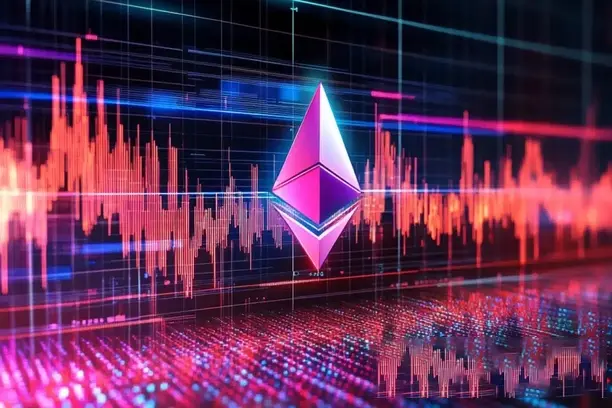What is LSK?
The Link to the Application (LSK) is a blockchain platform designed for decentralized applications (dApps) with the goal of providing a flexible and efficient infrastructure for developers to easily build and run blockchain applications. Compared with traditional blockchain systems, LSK is characterized by its unique architectural design and strong scalability, which gives it high potential in the highly competitive crypto market. In this paper, we will delve into the functional features of LSK, how it can support developers, and its future development potential.

Basic Concept and Operation of LSK
LSK is an open platform based on blockchain technology focused on providing the development, operation and management of decentralized applications (dApps).LSK operates in a way that bears some resemblance to mainstream blockchains such as Ethereum, but it introduces an innovative blockchain architecture that makes it much easier for developers to create blockchain apps that meet specific needs.
LSK's core design concept is modularity, which allows developers to choose the right blockchain module for their application without having to redevelop the entire blockchain infrastructure. This makes the development process more flexible and efficient, and LSK's Lisk SDK (Software Development Kit), a smart contract language, simplifies the development process and enables developers to deploy applications more quickly.
LSK Core Functions and Features
One of the main features of LSK is its scalability. Traditional blockchain systems often face scalability bottlenecks, but LSK solves this problem by dividing the blockchain into multiple "side chains". Each side chain can carry different applications, thus sharing the burden of the main chain and realizing efficient resource utilization.
The security of LSK is also one of its highlights. Like other blockchain systems, LSK adopts a consensus mechanism to ensure the security of blockchain operation. In LSK, all transactions go through multiple encryption and authentication to ensure the authenticity and integrity of transaction data.
Finally, LSK emphasizes the openness and compatibility of the ecosystem. Developers can use multiple programming languages to develop applications, and LSK supports interoperability with other blockchain platforms, which makes LSK's ecosystem more diverse and attractive to developers and users from different fields.
How to Develop Decentralized Application (dApp) Using LSK
Developing a decentralized application (dApp) on the LSK platform is not difficult, mainly thanks to its powerful Lisk SDK, which provides developers with functional modules including blockchain creation, smart contract writing, API interface setup, and other tools that greatly simplify the development process.
Developers need to set up their blockchain environment and choose the appropriate sidechain structure. Then, the Lisk SDK is used to write smart contracts and define transaction logic that can be flexibly adapted to the needs of the application. Finally, the developer can deploy the application to the LSK blockchain and interact with the users via the provided API.
It is worth mentioning that the decentralized nature of the LSK platform allows developers to no longer rely on a single server or platform, which improves application security and stability. Decentralization also makes the operation cost of applications relatively low, so developers can devote more resources to application innovation and optimization.
LSK's Development Potential and Future Development
LSK's development potential is reflected in its unique technology architecture and growing community of developers. LSK's support for cross-chain operations and modular architecture gives it great flexibility and scalability to address future blockchain technology developments. As blockchain technology matures, LSK will have the opportunity to become the infrastructure for many more industries, whether in finance, gaming or the Internet of Things (IoT), that are likely to benefit from LSK's technology.

The LSK team has also made a lot of efforts in promoting the developer ecosystem. They regularly organize developer competitions, offer rewards and open up more development resources, which helps attract more developers to join the LSK ecosystem. As the developer community expands, LSK's application landscape will become more and more extensive and could become one of the key players in the blockchain space.
Comparison between LSK and other blockchain platforms
In the market, many blockchain platforms such as Ether, Polkadot, etc. are providing the infrastructure for decentralized application development. the biggest advantage of LSK is its lightweight design and extremely high scalability. Compared to platforms such as Ether, LSK offers faster transactions, lower costs, and a simpler development process.
While Ethernet has a powerful ecosystem, its scalability issues and high transaction fees have discouraged some developers from using it. In contrast, LSK's modular and side-chain design provides developers with more options and flexibility, especially for projects that want to reduce costs and increase efficiency.
How to trade and participate in the ecology on the LSK platform
For users, participating in the LSK platform ecosystem is very simple. All a user needs to do is to own LSK tokens and choose an LSK-enabled wallet to start participating in transactions. LSK tokens can be used in the platform to pay for transactions, participate in governance polls, or as a reward to encourage developers.
The decentralized nature of LSK allows users to conduct transactions directly on the blockchain without relying on a centralized organization or third-party platform. This not only improves the security of transactions, but also reduces transaction costs. For long-term investors, holding LSK tokens also allows them to enjoy dividends or participate in blockchain governance.
Conclusion
LSK (Application Chain) is a powerful and highly scalable blockchain platform that provides developers with simple and flexible tools to create decentralized applications. Its unique modular design and side-chain architecture enables LSK to run efficiently and solve the scalability problem faced by traditional blockchain platforms. With the expansion of developer ecosystems and increasing market demand, LSK undoubtedly has great potential for future development. LSK is expected to become one of the key platforms for blockchain applications in the rapidly developing cryptocurrency space.














